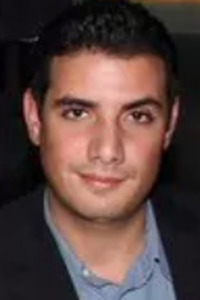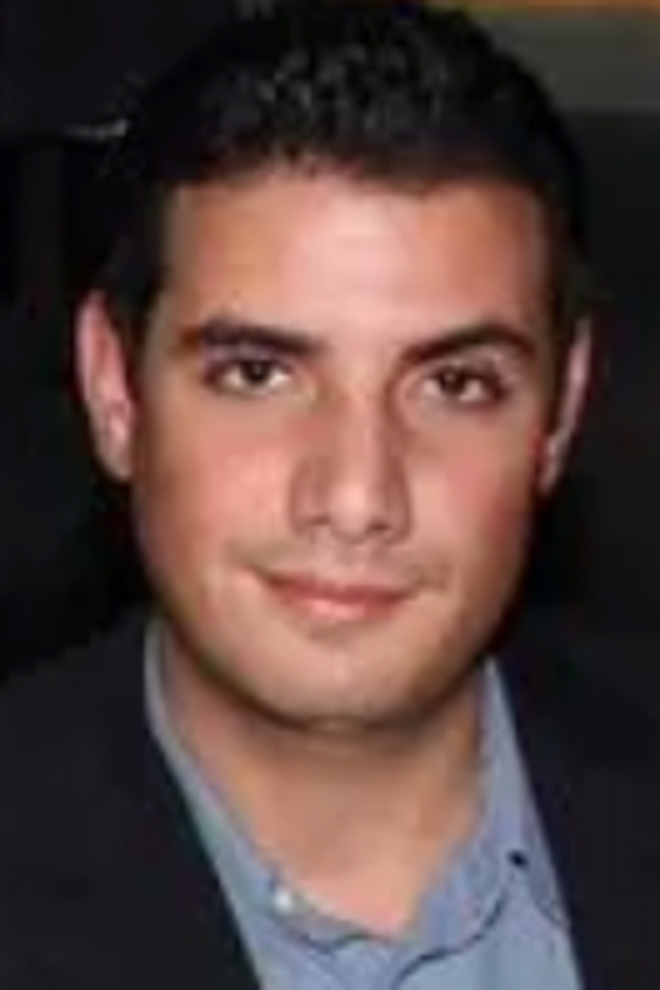
Amro Taleb is a Syrian and Canadian citizen who has worked as a consultant to several NGOs in Syria. Taleb has taught at the Syrian International University for Science and Technology. He holds a masters degree in engineering from the University of Toronto and a doctorate from the Swiss Management Center. Taleb spoke at Stanford at the end of last year, and The Daily interviewed him to learn more about the situation in Syria and his experiences there.
The Stanford Daily (TSD): I know you have both Canadian and Syrian but could you speak a little bit more about yourself and your personal background?
Amro Taleb (AM): So I am Syrian-Canadian. I’ve spent most of my childhood in Damascus and I studied in Mining Engineering at the University of Toronto […] In 2009, I went back to Syria to work as a professor teaching business courses and providing consultation to the ministry on renewable energy. As of March 2011 the revolution started. I tried just to show the people that the administration was changing.
Assad’s wife was building this idea of attracting new blood, highly educated people, to the administration in Syria to show the people that there were adjustments. But it didn’t work that well because we realized the atrocities. Me and a few other moderates, civilian, well-educated people took a side based on a humanitarian point of view […] Soon though, the Assad regime put a lot pressure on us; they showed us how they treat people in prison, so we got the message to leave Damascus, and I explored the rest of Syria to see what was really going on.
I really wanted to know why this Revolution started. I realized it started as a suburban revolution because Assad was very smart to please the people in city—Aleppo, Damascus; all the business people were happy and fine. The people in the city didn’t start it. The people in the suburb area did because they suffered, because they were poor; they had no services and the Assad family controlled everything. They are a totally different people.
TSD: What did you do with this realization?
AM: I decided to go all across Syria, and I witnessed the violence myself. I witnessed the way [Assad] is killing people; using the air stick rockets and barrels of bombs I had to collect heads and bodies; we saw a lot of kids dying. I became so attached to the children. There are a lot of children that are so close to my heart and they died in front of me. That is when I decided it is not about this revolution, it’s not about regime/anti-regime, so I decided to work with the kids.
I focused on engineering, infrastructure, water dams, creating electricity, traveling around the world making speeches about Syria, focusing on how we can better do humanitarian aid and providing awareness to the world.
I have my own school that I teach over there grades 1-12. It’s run by my company Canaturk, and I help out university students as well and other charities. We have about 200 orphans we are taking care of, and Canaturk is a joint venture with local organizations, each of which is doing something different. One is focusing on humanitarian aid, one is focused on orphans and one is focused education. I also provide consultation to NGOs on how they deliver aid and how they provide infrastructure.
TSD: Considering the chaos, how effective are the NGOs working in Syria, both the local ones and the ones that are commissioned from the outside? How has that changed of the course of the last few years?
AM: Unfortunately, there is a crazy amount of money being handled by these NGOs. But when you compare to the work on the ground, nothing happens. […] So most of them, what they do is a workshop in a five star hotel just talking about conflict-resolution and peace building, bringing activists that have no idea about what’s going on the ground. Even when you do these workshops that are overpriced and not the right time, at least bring the right people, like students who are ex-fighters or people who are really on the ground.
TSD: With ISIS spreading, do you think it’s too late to help?
AM: Well I say it’s never late, but it is in a late stage, this can’t be fixed in one or two years. It will take time, and you have to pick the right key players. When the United States talks about the moderate fighters, they choose the wrong moderate fighters. […] Because these people they don’t have any loyalty to anybody. Regimes can buy them, Saudis can buy them, Qataris can buy them.
Up until now, it was impossible for the United States to fund any moderate fighters because the regime, Nusra and ISIS [would] assassinate them. The only exception is the south of Syria where there is good coordination over there with the Americans supporting the fighters. But most of Free Syrian Army are a bunch of thieves and good ones with no supports. So unfortunately, the people in Syria, if they give them a choice between Nusra, Regime and Free Syrian Army, they will choose the Nusra.
TSD: But isn’t stealing less bad then the horrible violence that ISIS and the regime commit every day?
AM: Nusra and ISIS, you see the horrible violence part of them, but there is a second part who are the non-military part. Most of them, they are very well-educated people, they know how to talk to people, administrations and airports. Number two, because of the frustration of the Sunni from the Shia from the Alawite, they are at the point where they are willing to shake hands with the devil.
And I can see that in Iraq. So we are now waiting for someone who is stronger, who can compete with the regime, who offers them the minimum life. Also, Nusra and ISIS try to create very good relationships with the tribes and the businessmen. Even though these people hate their ideology, and hate everything they are doing, they have to adapt to the reality and they want to work with them to protect their city. There are people in ISIS and Nusra that really do have experience running a city, running a state and how to deal with the mentality of the Syrian people in terms of emotion and community. But you have to distinguish between Nusra and Isis. Nusra is 80 percent Syrian. ISIS has a different agenda.
TSD: Can you elaborate on the last time you were there and how often you’ve been back?
AM: The last time I was there was [in November]. I was in Kobani, where the Kurds are fighting. This is where all the journalists are. They stand at the Turkish border to see what’s going on.
Recently, there are very few journalists within Syria. To get out, they have to negotiate and it really depends on who is taking them.
TSD: What had changed when you most recently went back?
AM: When the coalitions started, they gave Assad a huge gift. Because this guy now doesn’t have to worry about bombing north Aleppo and all that so he focuses on killing more people in other areas. And he managed to retake control in other areas so this is really bad.
In the area where the coalition is bombing ISIS, all the logistics help and aid has completely stopped so people are suffering and are isolated. They can’t do their normal trade that they are surviving on.
But at the same time, what is the positive side? The positive side is that they stopped the spread of ISIS. So they slowed them down. Number two, they are destroying ISIS in an economical way. They don’t have resources because most of their resources come from selling oil and gas. So when you’re hitting the refineries of oil and gas, and when you have them surrounded, they cannot maneuver.
TSD: One of my last questions is about the time you spent working with the children on the ground. What were the biggest challenges you faced?
AM: I have a huge challenge with the psychology of the kids. I have two kinds of kids. Kids who suffer watching their mom and dad die in front of them, and kids that in addition of watching their parents die by the regime, they are brainwashed by ISIS [such that] these kids sometime play with beheaded people.
That is the great challenge I have; I need an expert in that. I need a great support. I need a psychologist, and I need someone who is going to support the kids with education. University students, they are fighters but if we can give them the chance to continue education, they will stop the fight. They are my students; they told me that. When you provide education for the kids, when you do therapy, when you help the students on the ground, this helps me enormously.
TSD: My last question is what can Stanford students possibly do? What can people in the U.S. do who aren’t affiliated with the government who want to see a peaceful solution in Syria but feel very distant from the conflict and powerless?
AM: Doing more studies about Syria. Field trips to Turkey like George Mason University has done where they can meet face-to-face with Syrian activists. They have knowledge and a better understanding; they can provide a better awareness. And of course, there is food supply, donations and blankets. If you spread awareness, people will be interested, and better research will come about.
This interview has been condensed and edited.
Contact Alexa Liautaud at alexal ‘at’ stanford.edu.
